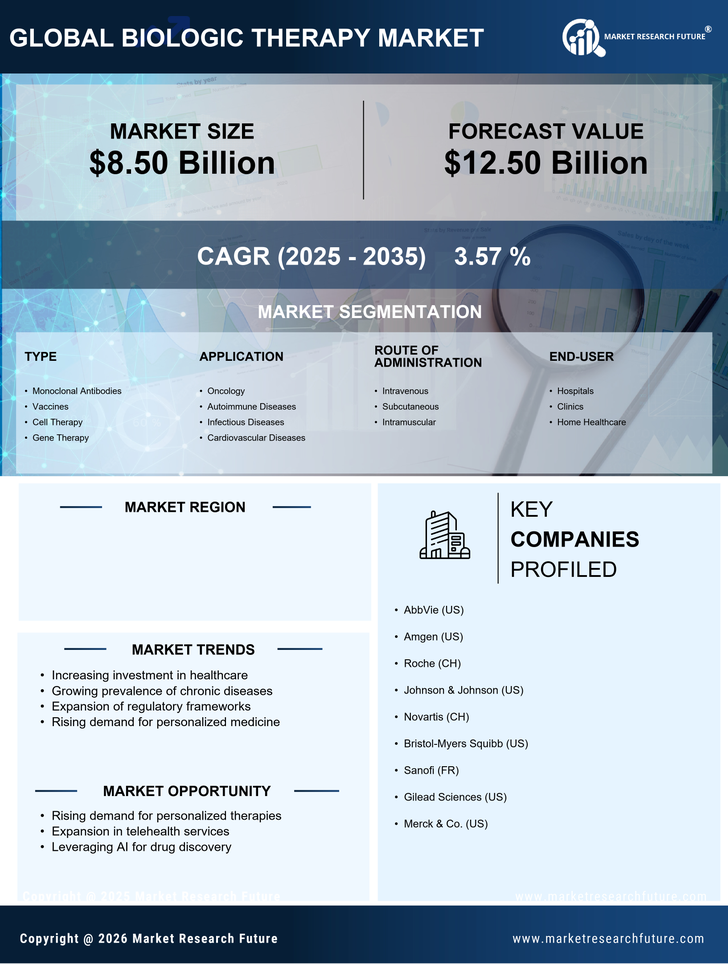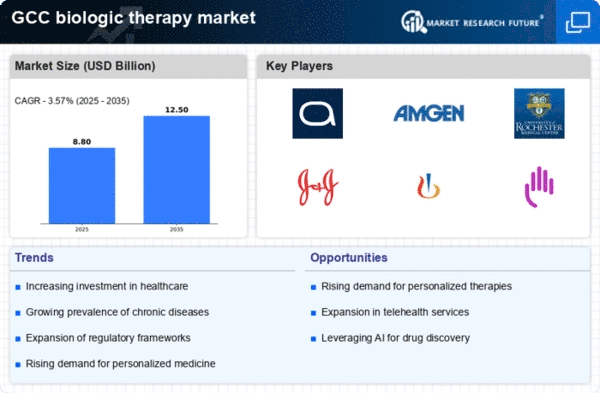Rising Healthcare Expenditure
The increasing healthcare expenditure in the GCC is a crucial driver for the biologic therapy market. With governments prioritizing health as a key component of national development, healthcare budgets are expanding. In 2025, healthcare spending in the GCC is expected to reach approximately $100 billion, reflecting a growth rate of 5% annually. This increase in funding allows for greater investment in biologic therapies, which are often more costly than traditional treatments but offer superior outcomes. As healthcare systems allocate more resources to advanced therapies, the biologic therapy market is poised for significant growth, catering to the evolving needs of patients.
Government Initiatives and Funding
Government initiatives aimed at enhancing healthcare infrastructure in the GCC are significantly influencing the biologic therapy market. Various national health strategies are being implemented to promote research and development in biologics, with funding allocations increasing annually. For instance, the GCC governments have committed to investing over $10 billion in healthcare innovation over the next five years. This financial support is expected to facilitate the development of new biologic therapies, thereby expanding treatment options for patients. Furthermore, these initiatives are likely to attract international collaborations, enhancing the region's position in The biologic therapy market.
Technological Advancements in Biologics
Technological advancements in biologic therapies are transforming treatment paradigms within the GCC. Innovations in biotechnology, such as monoclonal antibodies and gene therapies, are becoming increasingly prevalent. These advancements not only improve the efficacy of treatments but also reduce side effects, making biologics a preferred choice for many healthcare providers. The biologic therapy market is projected to grow at a CAGR of 8% over the next five years, driven by these technological innovations. As healthcare providers in the GCC adopt these cutting-edge therapies, the market is likely to expand, offering patients more effective and personalized treatment options.
Increasing Prevalence of Chronic Diseases
The rising incidence of chronic diseases in the GCC region is a pivotal driver for the biologic therapy market. Conditions such as diabetes, cancer, and autoimmune disorders are becoming more prevalent, necessitating advanced treatment options. According to recent health statistics, chronic diseases account for approximately 70% of total healthcare expenditures in the region. This trend underscores the urgent need for effective biologic therapies, which are often more targeted and efficient than traditional treatments. As healthcare systems in the GCC strive to improve patient outcomes, the The biologic therapy market is likely to experience substantial growth due to the demand for innovative solutions that address complex health challenges.
Growing Awareness and Acceptance of Biologics
There is a notable increase in awareness and acceptance of biologic therapies among healthcare professionals and patients in the GCC. Educational initiatives and outreach programs are effectively informing stakeholders about the benefits and potential of biologics. This growing awareness is reflected in the rising prescription rates of biologic therapies, which have increased by approximately 15% in the past year. As patients and providers become more informed about the advantages of biologics, including their targeted action and reduced side effects, the biologic therapy market is likely to see continued expansion. This trend indicates a shift towards more innovative treatment approaches in the region.

















